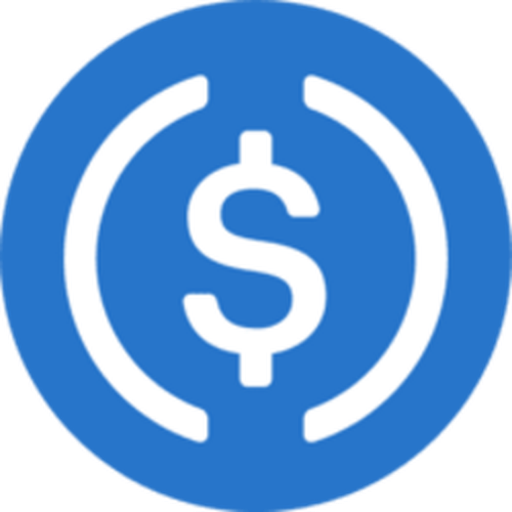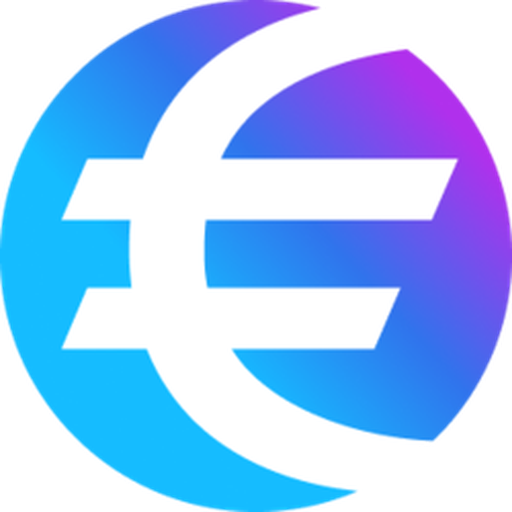USDC vs STASIS EURO – Price, Market Cap & Performance Compared
Which coin performs better – USDC or STASIS EURO?
We compare the current price (0.99971 $ vs 1.17 $), market cap (74 153 765 385 vs 145 195 353) and all-time high (1.17 vs 1.79).
Find out which one stands out right now!
USDC is currently trading at 0.99971 $, while STASIS EURO stands at 1.17 $. These cryptocurrencies differ not only in price but also in market presence.
The market cap of USDC is around 74 153 765 385, and STASIS EURO has about 145 195 353. Their respective all-time highs are 1.17 for USDC and 1.79 for STASIS EURO.
Daily trading volume and the 24h price change (-0.00009 % vs 0.48424 %) also offer key insights.
Compare all metrics now and see which coin fits your investment strategy best!
USDC
USD Coin (USDC) is a stablecoin that is pegged to the US dollar, offering a consistent value and reducing the volatility often associated with cryptocurrencies. It provides a crucial bridge between traditional financial systems and digital currency markets, facilitating easy and secure transactions. USDC's foundation on blockchain technology ensures transparency and enhances trust among users and institutions.
more informationSTASIS EURO
STASIS EURO aims to bring stability to the volatile world of cryptocurrencies by pegging its value to the Euro, thereby providing a reliable digital asset for users and investors. This stablecoin facilitates seamless transactions and hedges against market fluctuations, making it an attractive option for those looking to engage in the crypto space without the inherent risks typical of more speculative coins. With its focus on compliance and transparency, STASIS EURO is positioned to gain traction among both individual and institutional users seeking a trusted digital currency solution.
more information

|

|
|
|
|
General Information |
|
|---|---|
|
Title
USDC
|
Title
STASIS EURO
|
|
Symbol
usdc
|
Symbol
eurs
|
|
Whitepaper
-
|
Whitepaper
-
|
|
Website
|
Website
|
|
Community
-
|
Community
-
|
|
Last Updated
2025-09-24 23:29
|
Last Updated
2025-09-24 23:28
|
Price Data |
|
|---|---|
|
Current Price $
0.99971 $
|
Current Price $
1.17 $
|
|
High 24h
0.99972 $
|
High 24h
1.17 $
|
|
Low 24h
0.99960 $
|
Low 24h
1.16 $
|
|
Price Change 24h
0.00000 $
|
Price Change 24h
0.00564 $
|
|
Price Change % 24h
-0.00009 %
|
Price Change % 24h
0.48424 %
|
Market Data |
|
|---|---|
|
Market Cap
74 153 765 385
|
Market Cap
145 195 353
|
|
Total Volume
10 559 655 699
|
Total Volume
54 061
|
|
Market Cap Change 24h
159 815 467
|
Market Cap Change 24h
906 353
|
|
Market Cap Change % 24h
0.21598 %
|
Market Cap Change % 24h
0.62815 %
|
|
Return on Investment (ROI)
-
|
Return on Investment (ROI)
-
|
Supply and Availability |
|
|---|---|
|
Circulating Supply
74 175 659 818
|
Circulating Supply
124 125 940
|
|
Total Supply
74 172 355 958
|
Total Supply
124 125 940
|
|
Max Supply
-
|
Max Supply
124 125 940
|
Historical Data |
|
|---|---|
|
All Time High (ATH)
1.17
|
All Time High (ATH)
1.79
|
|
ATH Change %
-14.75232 %
|
ATH Change %
-34.79071 %
|
|
ATH Date
2019-05-08 00:40
|
ATH Date
2023-03-14 12:00
|
|
All Time Low (ATL)
0.87765
|
All Time Low (ATL)
0.92964
|
|
ATL Change %
13.90744 %
|
ATL Change %
25.78216 %
|
|
ATL Date
2023-03-11 08:02
|
ATL Date
2022-11-10 13:44
|
USDC
Understanding USDC: A Stablecoin in the Volatile Crypto World
USDC, or USD Coin, is a prominent stablecoin in the cryptocurrency market. Issued by Circle and backed by fully reserved assets, USDC is designed to maintain a 1:1 value ratio with the US Dollar, making it a reliable digital dollar. The stablecoin ecosystem plays a crucial role in the broader cryptocurrency industry by providing a less volatile alternative to traditional cryptocurrencies like Bitcoin and Ethereum.
The Evolution of USDC
Launched in 2018, USDC was developed as part of a collaboration between Circle and Coinbase, two major forces in the cryptocurrency space. Since its inception, USDC has seen significant growth and adoption, becoming one of the leading stablecoins alongside Tether (USDT) and Binance USD (BUSD). While its all-time high reached $1.17 in May 2019, this was more of an anomalous spike that reinforced the need for rigorous controls to maintain stability around its intended $1 peg.
Pros of Using USDC
One of the primary advantages of USDC is its transparency and regulatory compliance. Circle, the company behind USDC, undergoes regular audits and publishes monthly attestations of its reserves, ensuring users that each USDC token is truly backed by a dollar or dollar-equivalent asset held in reserve. This transparency fosters trust and helps mitigate the volatility that plagues much of the crypto market.
Furthermore, USDC serves as a bridge between traditional finance and the blockchain world. It's used widely in Defi applications, allowing decentralized lending, borrowing, and trading while maintaining value stability. Additionally, USDC's integration into various wallets and exchanges worldwide adds to its utility and liquidity.
Cons of USDC
Despite its advantages, USDC is not without its drawbacks. One of the critical concerns involves regulatory risks, as stricter regulations on stablecoins could impact its future operations. Also, as a centralized stablecoin, USDC is subject to censorship concerns, where accounts can be frozen, diverging from the decentralized ethos that underlies most cryptocurrencies.
Another drawback is that, unlike decentralized alternatives, USDC requires a level of trust in the issuer, Circle. Any potential mismanagement or economic instability affecting Circle could, in theory, impact its ability to maintain the 1:1 peg, a risk inherent to any centralized stablecoin.
Past Performance and Market Impact
USDC has generally maintained its peg effectively, with minor fluctuations typically remaining within a tight range around $1. Its stability has been pivotal during periods of crypto market volatility, where it serves as a safe haven for investors looking to escape market downturns without exiting the crypto ecosystem.
In terms of market cap, USDC has experienced exponential growth, driven by increased adoption in the decentralized finance (Defi) space and demand for stable trading pairs. Despite being eclipsed by Tether (USDT) in terms of market share, USDC's reputation for transparency gives it a competitive edge.
Future Outlook for USDC
Looking ahead, USDC's future appears promising but laden with challenges. The growing scrutiny from regulators worldwide could result in regulatory changes impacting its operations. However, Circle's proactive approach to compliance and regulation may shield USDC from adverse outcomes.
The stablecoin's role in facilitating seamless transactions and enabling innovative financial products in the Defi space will likely continue to drive its utility and adoption. Moreover, as traditional financial institutions begin to explore blockchain technology, USDC could play a critical role in bridging the two worlds.
In summary, USDC's stability, transparency, and integration with both traditional and decentralized finance systems position it as a key player in the ongoing evolution of digital finance. However, navigating regulatory landscapes and maintaining trust will be crucial for its sustained success.
STASIS EURO
Introduction to STASIS EURO
STASIS EURO (EURS) is a unique cryptocurrency that has made a significant impact in the growing field of stablecoins. Pegged to the Euro, its primary aim is to deliver the stability of traditional fiat currencies while harnessing the advantages of blockchain technology. Launched with the intent of bridging the gap between fiat and digital currencies, EURS has positioned itself as a viable option for users looking for a dependable crypto asset.
Historical Performance
Since its inception, STASIS EURO has experienced notable price fluctuations. It reached an all-time high (ATH) of $1.79 on March 14, 2023. However, it has since seen a decline of approximately 39.49%, with its current price hovering around $1.085. Conversely, its all-time low (ATL) was recorded at $0.929636 on November 10, 2022, marking a recovery of 16.72% since then. The coin's price history highlights both its stability as a stablecoin and the challenges it faces in the volatile crypto market.
Advantages of STASIS EURO
There are several reasons why STASIS EURO stands out among other cryptocurrencies:
- Stability: As a stablecoin pegged to the Euro, EURS provides users with price stability, making it an excellent choice for trading and holding.
- Transparency: STASIS operates on a transparent blockchain, allowing users to track transactions and verify the coin's backing through regular audits.
- Ease of Use: With a user-friendly interface and the backing of traditional currencies, EUROS is accessible to both new and experienced crypto users.
- Regulatory Compliance: STASIS is committed to adhering to regulatory standards, which can instill confidence among potential users and investors.
Challenges Facing STASIS EURO
Despite its advantages, STASIS EURO is not without challenges:
- Market Competition: The stablecoin landscape is highly competitive, with established players like Tether (USDT) and USD Coin (USDC) dominating the market.
- Dependence on External Factors: Being a fiat-pegged asset, EURS is susceptible to fluctuations in the Euro, which can affect its attractiveness in the market.
- Regulatory Scrutiny: The evolving regulatory environment for cryptocurrencies poses risks that could impact the operations of STASIS and its stablecoin.
Future Outlook
The future of STASIS EURO looks promising yet uncertain. As the demand for stablecoins continues to rise, driven by the need for secure and stable digital assets, EURS may see increased adoption. With plans for strategic partnerships and continued efforts to enhance its technological framework, STASIS is well-positioned to carve out a niche in the competitive crypto market. However, its future performance will depend on various elements, including regulatory developments, market sentiment, and its ability to adapt to the rapidly changing landscape of digital finance.
Conclusion
In summary, STASIS EURO presents a compelling option for users seeking a stable digital asset linked to the Euro. With its advantages of stability, transparency, and compliance, it holds potential for growth in the future. However, challenges remain, necessitating ongoing vigilance and strategic response to market trends and regulatory changes. As the cryptocurrency sphere continues to evolve, STASIS EURO will have to navigate these challenges to achieve long-term success.

